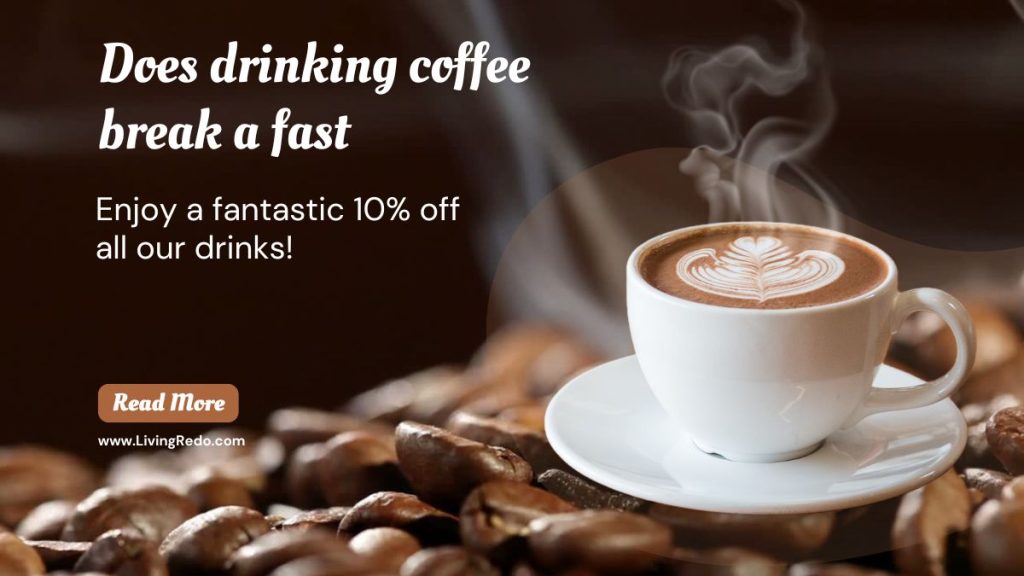Does Drinking Coffee Break a Fast?
Introduction
Fasting has become one of the most popular health and wellness trends worldwide. From intermittent fasting to extended fasts, millions of people are turning to this practice for weight loss, improved metabolism, and longevity. But one question often sparks debate among fasters: does drinking coffee break a fast?
Coffee is the world’s most consumed beverage after water, and many people rely on it for energy and focus—especially during fasting hours. In this article, we’ll explore how coffee interacts with fasting, whether it disrupts the fasting state, and the best ways to enjoy coffee without ruining your results.
What Happens in Your Body During Fasting?
When you fast, your body goes through several physiological changes:
- Insulin levels drop allowing the body to tap into stored fat.
- Ketosis may begin where fat is converted into ketones for energy.
- Cellular repair processes (autophagy) get activated, helping the body remove damaged cells.
- Inflammation markers decrease, promoting better overall health.
These benefits are the reason people want to avoid anything that might “break” their fast—including coffee with added ingredients.
Types of Fasting and Their Rules
Not all fasting methods are the same, and the rules vary depending on your goal:
- Intermittent Fasting (16:8, 18:6, etc.) – You fast for a set period and eat within a specific window.
- Prolonged Fasting (24–72 hours) – Extended periods of no caloric intake.
- Religious Fasting (Ramadan, spiritual practices) – Rules vary, often more strict.
- Modified Fasting (fasting-mimicking diets) – Some calories are allowed but controlled.
Each type has slightly different guidelines, but the general idea is to avoid significant calorie intake during fasting hours.
Does Drinking Coffee Break a Fast?
Here comes the main question: does drinking coffee break a fast?
The answer depends on what type of coffee you’re drinking:
- Black Coffee – Plain black coffee contains about 2–5 calories per cup, which is generally considered negligible and unlikely to break a fast. It doesn’t trigger an insulin response or stop autophagy.
- Coffee with Sugar – Even a teaspoon of sugar adds 15–20 calories and spikes insulin, which can break your fast.
- Coffee with Milk or Cream – Adding milk, cream, or flavored creamers adds fat, protein, and carbs, which can interfere with fasting benefits.
- Bulletproof Coffee (with butter or MCT oil) – While popular in keto diets, this technically provides calories and fat. It may not break ketosis, but it does break a traditional fast.
So, if your goal is autophagy, fat burning, and gut rest, stick to black coffee only.
Coffee’s Effect on Metabolism and Ketosis
Coffee is more than just a source of caffeine. Studies show that coffee can:
- Boost metabolism by 3–11%.
- Enhance fat burning during fasting windows.
- Support ketosis by helping the body mobilize fatty acids.
As long as no sugar or cream is added, black coffee aligns with the goals of fasting.
Black Coffee vs Coffee with Additives
Let’s compare:
| Coffee Type | Calories | Effect on Fasting | Verdict |
|---|---|---|---|
| Black Coffee | 2–5 | No insulin spike | Safe |
| Coffee with Sugar | 15–30+ | Breaks fast | Not safe |
| Coffee with Milk/Cream | 20–100+ | Breaks fast | Not safe |
| Bulletproof Coffee | 100–300+ | Breaks fast (traditional) but supports ketosis | Depends on goal |
This makes it clear that black coffee is the best option while fasting.
Benefits of Drinking Coffee While Fasting
Surprisingly, drinking coffee (the right way) can actually enhance your fasting experience:
- Appetite suppression – Helps reduce hunger pangs.
- Increased focus and energy – Keeps your brain sharp.
- Enhanced fat burning – Works synergistically with fasting.
- Antioxidant benefits – Supports overall cellular health.
- Improved workout performance – Great pre-fasting workout booster.
Risks and Downsides to Consider
While coffee can be beneficial, overconsumption may have downsides:
- Increased cortisol (stress hormone) if consumed excessively.
- Stomach irritation or acid reflux, especially on an empty stomach.
- Sleep disruption if consumed late in the day.
Moderation is key—1–3 cups of black coffee is safe for most fasters.
Expert Opinions and Scientific Research
Health experts and studies agree on the basics:
- Harvard Medical School states that black coffee is unlikely to interfere with fasting benefits.
- Dr. Jason Fung (fasting expert) recommends black coffee during fasting as it doesn’t raise insulin significantly.
- Research shows that caffeine may even enhance autophagy, one of the main reasons people fast.
Best Practices: How to Drink Coffee During a Fast
To maximize results:
- Stick to plain black coffee with no sweeteners.
- Limit to 2–3 cups per fasting window.
- Avoid artificial creamers or flavor syrups.
- If sensitive, try cold brew (less acidic).
- Stay hydrated—coffee is a mild diuretic.
Common Myths and Misconceptions
- Myth 1: Any calorie breaks a fast.
→ Tiny amounts from black coffee are negligible. - Myth 2: Coffee ruins autophagy.
→ Studies suggest caffeine may actually boost autophagy. - Myth 3: Decaf coffee is safer.
→ Both regular and decaf are fine, as long as they’re black.
FAQs
Conclusion
So, does drinking coffee break a fast? The complete answer is that black coffee does not break your fast and may even support its benefits. However, adding sugar, milk, cream, or butter will provide enough calories to technically break a fast.
If your fasting goals include fat loss, autophagy, and improved health markers, then stick to black coffee and enjoy its metabolic and mental benefits.
